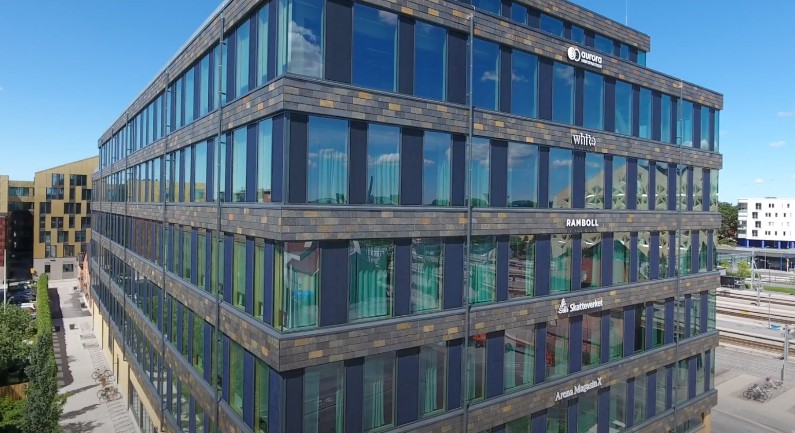
Building-integrated photovoltaics (BIPV) has the potential to contribute significantly to the achievement of the decarbonisation targets set by the European Commission. In this sense, a joint industrial effort is needed to conceive and develop highly efficient and multifunctional energy-producing construction materials, in order to provide joint market opportunities for the European photovoltaic and construction industry value chains. This market deployment depends critically on the achievement of ambitious targets in terms of cost reduction, flexibility of design, high performance, aesthetics, reliability in the long-term, standardization and compliance with legal regulations.
The Horizon 2020 Be-Smart project has developed the concept of “energy positive glazing” by producing multifunctional photovoltaic (PV) glass solutions for roofs and façades. The glazing systems are very flexible in terms of design and colour, integrating crystalline silicon photovoltaic cells with a “hidden PV” approach. A wide range of coloured encapsulation materials and glass-glass photovoltaic modules, extensively tested according to the relevant European standards, have been developed.
The project has accomplished three large demonstration installations in operational buildings:
- Magasin X in Uppsala (Sweden) is the largest wooden office building in Sweden. The southeast and southwest façades incorporate homogeneous, dark coloured PV modules perfectly integrated in the structure.
- Queen Ingrid’s garden in Oslo (Norway) is a residential, nursing home for people with Alzheimer and dementia. Digitally printed coloured PV modules have been installed in the roof.
- The Migros commercial centre in Neuchâtel (Switzerland) displays a large façade of homogeneous black and white Be-Smart glass-glass photovoltaic laminated modules.
The project has also developed a roadmap for the replication of the Be-Smart solutions across Europe.
MORE INFORMATION
CORDIS project factsheet
Twitter account
LinkedIN account
- Reference
- H2020-EU.3.3.2. - Low-cost, low-carbon energy supply
- Project duration
- 1 Oct 2018 - 30 Sep 2022
- Project locations
- NorwaySwedenSwitzerland
- Overall budget
- €9 416 550
- EU contribution
- €8 155 17086.6% of the overall budget
- Project website
- https://www.besmartproject.eu
Stakeholders
Coordinators
ECOLE POLYTECHNIQUE FEDERALE DE LAUSANNE
- Address
- Batiment Ce 3316 Station 1, Switzerland, 1015 Lausanne, Switzerland
- Website
- http://www.epfl.ch/
